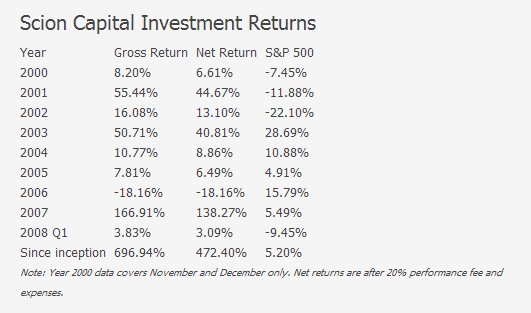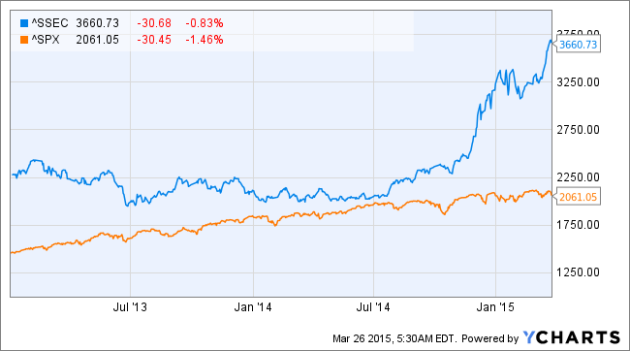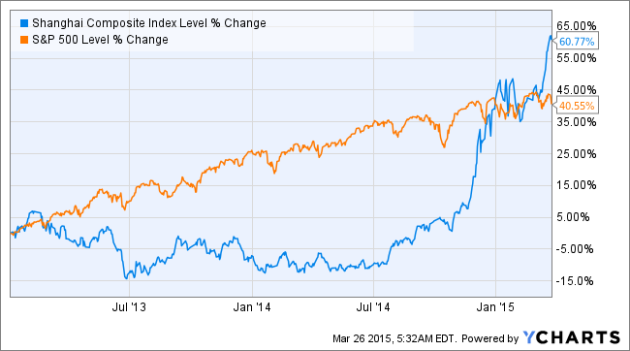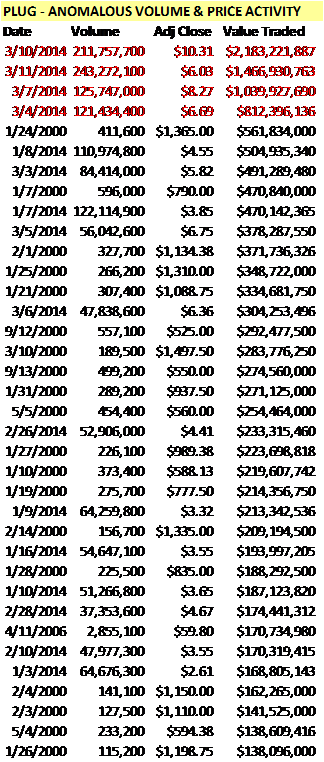I Am a Short Seller
“If you know the enemy and know yourself, you need not fear the result of a hundred battles. If you know yourself but not the enemy, for every victory gained you will also suffer a defeat. If you know neither the enemy nor yourself, you will succumb in every battle.” - Sun Tzu, Art of War
My name is Daniel, and I am a short seller. I became aware of this truth and came to accept it several years ago. I do not think I ‘chose’ to become one, nor did anyone ‘teach’ me to become one*. In this regard, I agree with Jim Chanos, Marc Cohodes, and others, who believe short sellers are not ‘made’, but rather ‘born’. You are one, or you’re not. Plain and simple. Since then, I’ve fully accepted and embraced the fact I’m a short seller. I’ve experienced my share of losses and victories, but overall, I’ve enjoyed the ride. I still have plenty more to learn about the art of short selling, and am cautiously optimistic I will get better with time. With that said…
*With that said, I am grateful for the on-going mentor-ship and friend-ship that several have provided me. I believe they have played a critical role in my maturation as an analyst, short seller, and overall investor. I also believe they have helped me grow, personally.
I Aim to Become an Excellent, Overall Trader and Investor
“The will to win, the desire to succeed, the urge to reach your full potential… these are the keys that will unlock the door to personal excellence.” - Confucius
There are three short sellers - I will refer to them as A, B, and C - who, in their own unique ways, have been encouraging me to strive to be an overall excellent investor (i.e. to learn to go long). Fortunately, this is a desire that I have finally begun to desire for myself. I do not know if I am meant to become competent/excellent at buying stocks, or if I am fated to be a ‘dedicated specialist’ for the rest of my life.
A - I thank A (over a series of conversations) for helping me develop a firm intellectual grasp of the risk/reward characteristics of going long vs. short. For example, the mechanics of a short or long position going against you, risk management, position sizing, scale-ability, the pressures of managing OPM, etc. The reasoning and philosophy underlying selecting longs, shorts, and building portfolios consisting of both. I also thank A for helping me see the need to learn how to buy/long things. A made it clear and convinced me that this is a MUST.
Finally, A made it clear to me that great long-term investing is about finding great businesses (preferably with great management), whereas short selling is about finding terrible people (preferably running terrible businesses).
B - Whereas A really helped me build a solid intellectual foundation , B has helped me primarily “learn by doing”. B has periodically mentioned long ideas that get him really excited (they are not common), and articulated long theses in ways that I can understand and get comfortable. I would say that B is exceptionally good at buying event-driven / special situation longs that have high chance of winning regardless of the overall market environment. I think every single long idea he has mentioned has led to positive P&L (he rarely talks longs). I can’t think of a long idea he has mentioned that has lost money (at least up to the point of the ‘events’ and/or ‘triggers’ he has identified).
I don’t know if B realizes, but in an indirect way, I’ve also learned a lot about longs/investing by B’s comments on short selling. For example, B has often told me “that is not the kind of company you short”, “short sellers do not short ___” (I remember him saying this about Apple, Microsoft, and Tesla) … after observing the times he has said that, I’ve come to realize that these types of names that may seem like good shorts superficially, tend to actually be excellent longs in pullbacks. I don’t think B is saying they can’t work as shorts (from a trading perspective), but at best, they’re singles… not home-runs. So why waste time on them?
C - Like B, C has told me that I must learn to go long. He has warned that otherwise, there’s always the risk of going insane, or encountering financial hardship. Whereas A and B have fully engaged my head (when it comes to buying stocks), C has engaged my heart. I feel inspired to become excellent at picking longs, and therefore, become an excellent overall investor. C started out dedicated to short-selling. Over the course of time, he has proven to be an excellent investor. He is living proof that it can be done, and that inspires me. It can be done! C also told me something I suspected: I must find niches on the long side that I can put my heart into. Like shorts, I need to develop a personal passion for certain kinds of longs, and no one can teach me that. As a matter of practicality, C told me that it is far more desirable to focus on finding great businesses rather than statistically cheap(looking) ones.
Investing Lessons I’ve Learned the HARD WAY
“Insanity: doing the same thing over and over again and expecting different results.” - Albert Einstein
“Once we realize that imperfect understanding is the human condition there is no shame in being wrong, only in failing to correct our mistakes.” - George Soros
When it comes to researching longs, I’m probably a C- analyst (currently, speaking). When it comes to trading longs, B- (when it comes to researching and trading shorts, I’ll let others opine). Bear in mind, I was once an F- analyst and F- trader/investor in longs. In fact, most my longs between 2005-2008 were TERRIBLE. If you were short all my longs in that period, you would’ve made 80+% over that period. It took me a long time to realize, accept, and forgive myself of the mistakes I made. In fact, this process of introspection led me to realize I was a short seller.
Here are some of the (painful) lessons I’ve learned, on the long side:
- Just because a security/stock is down (significantly), does not mean it is cheap nor even likely to go up.
- Cheap doesn’t mean can’t get cheaper.
- If a business is experiencing problems (e.g., accounting, ethics, missing earns) you should assume it is worse than it looks.
- CEOs lie/cheat/steal. You should not make investment decisions purely because you ‘trust’ management. A lying CEO will say “trust me” without flinching.
- Stock fraud, and material misrepresentations, are real.
- Don’t create a concentrated or levered portfolio without knowing who the idiot in the room is (and even this is insufficient). Otherwise, it is YOU.
- Book value and earnings can go negative… therefore, statistically cheap (looking) may quickly become statistically expensive.
- Bad businesses rarely become mediocre ones. They are more likely to go bust or require a ‘restructuring’ (euphemism for, your equity stake getting wiped out).
- In market corrections, nearly everything goes down.
- “Be greedy when others are fearful” doesn’t guarantee you will make money.
- Being contrarian / counter cyclical / against the trend is not insufficient: you must be right.
- You should assume that the markets (which is the collection of all interested human beings) know more about a security than you.
- High dividend yields are often predictive of a dividend cut
- Textbooks, investor quotes, other investors’ opinions, certificates, etc. are no substitutes for direct experience.
- Plenty more stocks go to zero than to infinity.
The Present, The Future, and Prospective (Current) Long Opportunities
“The journey of a 1,000 miles begins with a single step.”
If I were to judge/grade my longs between 2010 - Present… NOT BAD. Definitely MUCH BETTER vs. my longs in 2005-2009. My P&L on longs has been positive over that time period. My batting average is way above zero (I think over 50%). My single biggest mistakes I’ve made time and time again on the long side in the last 4 years… not holding positions for sufficient time.
Some areas that interest me on the long side (I may be long or may initiate long positions in the following):
- Offshore drilling (e.g. RIG)
- Certain UK Grocery retailers
- Certain commodities-related businesses
- Gold and silver (I think there is a chance of a buying opportunity this quarter… I personally believe odds are better 3-12 months from now).
- Special Situation X
- Growth Stock Y
I am fully aware that most of the above are down/cheap(looking) for a reason, and face risk of additional impairment (perhaps even permanent impairment). That is why I am cautiously evaluating.
I am also seeking to divert my attention away from statistically depressed/cheap looking stocks, and focus on finding great businesses (and then determining if they are sensibly priced, or wait for opportunities to buy them at sensible prices). Admittedly, I have tended to focus more on whether a security is depressed rather than whether its underlying business is a great one that will remain great or perhaps even become greater, in time.
The impression I get from A, B, and C is that it is a better strategy to find great businesses, and then wait to buy them at sensible prices, vs. any other approach. Practically speaking, I think this will require spending less time observing securities prices, and more time observing the real world, people, and the world of commerce.
Time will tell if I am able to do this, and be able to get passionate about it.





